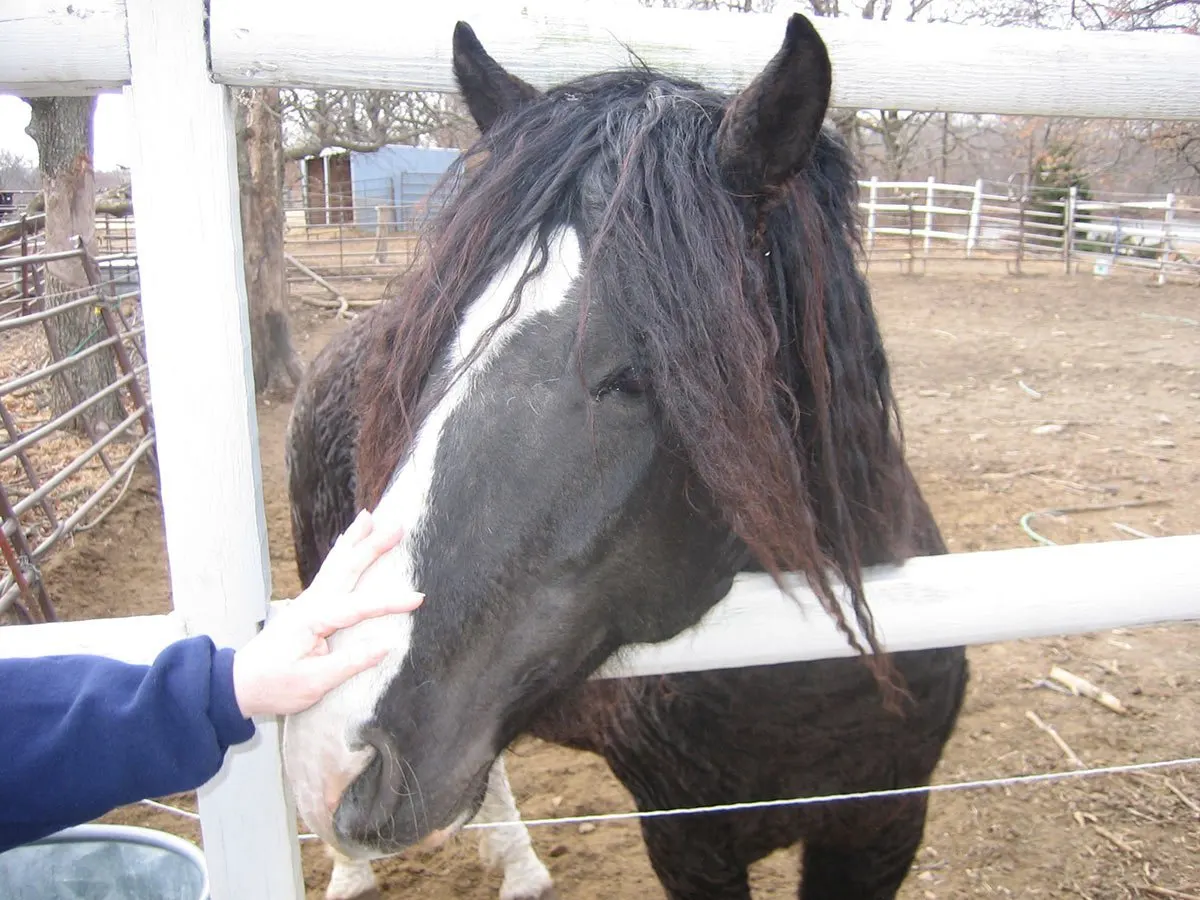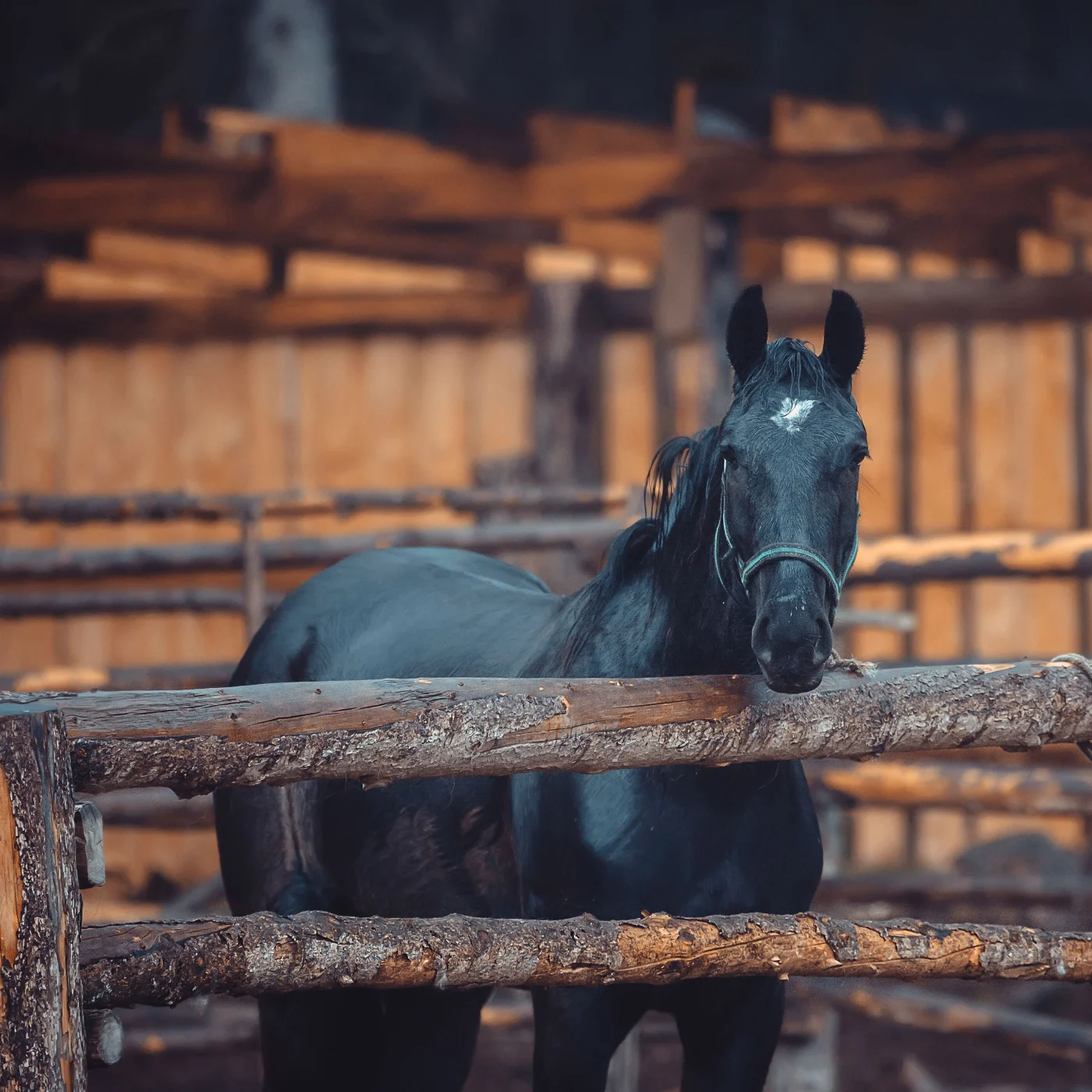Exposure to the sun has a tendency to cause dark-colored horse coats to naturally bleach during the spring and summer.
Sun damage can happen to any color of horse; however, it tends to be more pronounced on black horses, bay horses, and dark grey horses, turning patches of their coats from cobalt black to a rusty faded brown color. For owners of black horses, this can be frustrating, particularly during show season when you are trying to keep your horse looking its absolute best.
Luckily, there are some things you can do to help prevent color fading from happening this summer. Any preventative measures will need to be started before they begin to shed in the spring, and then kept up consistently throughout the summer.
Once a black horse’s fur has bleached from UV exposure, you won’t be able to change the color back. The horse’s coat will remain faded until its winter coat grows in.
Use Fly Sheets for Protect black Fur from Sunlight
One potential solution is to use a fly sheet to give your horse’s coat full coverage from the sun and prevent black fur from bleaching. Kool Coats are one style of flysheet that offers mesh paneling to maintain airflow to help keep your horse cool in the heat while providing excellent UV protection. Some fly sheets come with the option of a neck attachment to provide even more coverage for your horse, and a fly mask can also be used to keep their face protected from the sun.
Horses with white markings on their face, particularly on their muzzle and around their eyes, may be more prone to sunburn in these areas. A long fly mask that covers their muzzle will help to prevent this issue as well.

Keep Black Coats from Bleaching by Using Night Turnout
Since sun exposure is the root cause of black horses bleaching, turning your horse out at night is a surefire way to protect the color of their coat from damage. If your horse has a tendency to rip fly sheets off, then this is the only other option for completely avoiding exposure from the sun while still providing them with time out in the pasture.
If you live in hotter climates, night turnouts have the added benefit of helping to keep your horse cooler during the summer. Be mindful, however, that if there are any large predators in your area, they may make nighttime turnouts dangerous for horses. Better to have a black horse with sun-bleached fur than a large veterinary bill and a horse on stall rest!
Use Diet Supplements to Maintain Black Fur
One possible cause of color fading is a lack of minerals in your horse’s diet. Copper and zinc are two of the key minerals that help keep your horse looking its best from mane to tail. Ensuring your horse has a balanced diet is a good first step to preventing sun damage to their coat. You can check with a veterinarian or an equine nutritionist to see what may be missing from your horse’s diet that could help maintain a healthy coat.
Some feed supplements, such as Black as Knight, may help keep your horse’s coat darker. These supplements will help darken your horse’s coat while improving the shine. Some may also thicken manes and tails, and strengthen hooves. If you are looking for a cheaper alternative, it has been noted that the main ingredient in many of these supplements is paprika. You can try adding a little to your horse’s feed for a similar effect while helping to cut costs.
A key thing to look out for when adding any supplements is that they may present a false positive on horse drug tests, so make sure to do your research, know what substances are banned, and plan ahead before using it during show season.

Use Sunscreen Sprays to Protect black Horses from UV Light
Some companies make sunscreen sprays specially designed for use on horses. Eqyss and Vetrolin are two well-known options for equine sun protection sprays. The UV protection supplied by these sprays helps protect your horse’s coat from sun damage and keep its dark appearance.
Many of these often contain fur conditioning ingredients as well, and will help to detangle your horse’s mane and tail. Sunscreen is a great alternative if fly sheets or night turnout are not an option for your horse.
The downside to using sunscreen to prevent sun bleaching on your black horse’s coat is that it will need to be reapplied frequently. Depending on the SPF, it could be anywhere from every hour to every five hours. If your horse is only turned out for a few hours a day, a sunscreen with SPF 30 would most likely be enough to get them by, just be sure to apply a liberally to provide the black horse with the best color protection.
Give Your Black Horse a Bath
Sun bleaching typically shows up in areas where the horse sweats a lot, such as the saddle and cinch areas, and where the bridle sits. The presence of sweat (and likely, the high salt content) seems to enable the sun’s rays to more effectively bleach black hairs to brown.
To help prevent this from happening, make sure to rinse your horse off well after a workout, and let them dry off completely in the barn or stall. Once they are completely dry, brush the horse thoroughly to get any remaining sweat residue off of them before turning them out. UV rays are present even when the weather is overcast, and are likely to cause more damage when a horse’s coat is wet.
Use Coat Darkening Horse Shampoo
There are special darkening shampoos available that can enhance the color of your horse’s coat. This will not reverse the effects of a black horse’s bleached coat fading, but it will make your horse’s coat shiny while bringing out more of its natural color.
The effects of some darkening shampoo products on the market may last for a while, but others may require frequent upkeep and therefore would be a better option if you are planning to show your horse and will already be bathing them often.
Research and trial and error will be necessary to determine which product will work best for you.
Final Thoughts
Preventing your dark-colored horse from being bleached by the sun will be an ongoing project, especially in sunny regions. It will take some work to figure out what will be the best coat color protection method words for you- coat fade prevention may even require a combination of these precautions to maintain the desired coloring throughout the spring and summer months.
Since sun damage is not reversible, the most effective protection for your horse’s coat will be to start prevention methods early, and be consistent.
